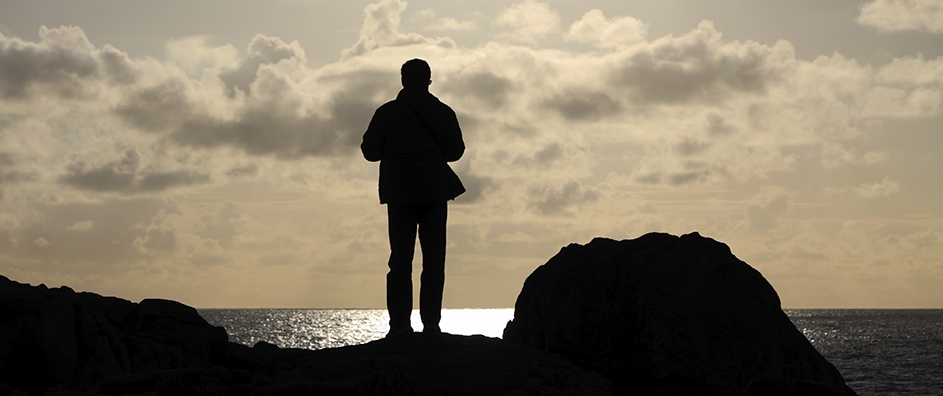The views expressed in our content reflect individual perspectives and do not represent the authoritative views of the Baha'i Faith.
My sister Jordis read books compulsively like I do, both of us voracious devourers of good writing.
We probably got it from our mother Peg, a devout reader and a smart, self-educated woman who never had the opportunity to develop her sharp wit and intelligence with formal schooling. Mom read constantly. We joked that she couldn’t actually sit without a book in her hand. I realize now that my mother probably read to escape from a pretty rough life, but her reading became her religion and she became our role model.
Jordis tended to read and love literary fiction, admiring and seeking out the most artistic and articulate writers she could find. For a time she headed up the Antioch Writer’s Workshop, where she would schedule talks by literary authors, then absorb their intelligent and rarefied company. On Mondays she would call me and regale me with tales of some fascinating, profound conversation about life or art or writing she had just enjoyed with literary heroes like Sena Jeter Naslund or William Least Heat-Moon or some other terrific writer.
 If she hadn’t talked to a great writer that week, you could bet she had read a great book. Our Monday conversations, between two people who loved each other and knew each other so well, who shared much enthusiasm and awe at the well turned metaphor and the plangent paragraph, soon became the juice of life for me. Nearly always, once we’d finished the high literary unpacking, deconstruction and meta-analysis she loved, we would talk about the beauty and elegance and power of the Baha’i writings.
If she hadn’t talked to a great writer that week, you could bet she had read a great book. Our Monday conversations, between two people who loved each other and knew each other so well, who shared much enthusiasm and awe at the well turned metaphor and the plangent paragraph, soon became the juice of life for me. Nearly always, once we’d finished the high literary unpacking, deconstruction and meta-analysis she loved, we would talk about the beauty and elegance and power of the Baha’i writings.
Jordis knew about my love for myth, mysticism and mysteries, and she wanted to know more. We talked extensively about the deep mystical writings of Baha’u’llah—The Hidden Words, the Seven Valleys and the Four Valleys, and the other poetic, enlightening, transcendent Baha’i books. Our long, serious discussions seemed to fill a need for her, especially since she knew she would soon pass from this world to the next. She drank in those writings. She loved many of the passages we read together, admiring their stellar literary and artistic qualities as well as their profound insights. This was one of her favorites:
O MY SERVANT!
Free thyself from the fetters of this world, and loose thy soul from the prison of self. Seize thy chance, for it will come to thee no more. – Baha’u’llah, The Hidden Words, p. 36.
Together we pondered this concept at length. The phrase “Loose thy soul from the prison of self” became a kind of code between us. When either one of us began to talk about material or mental or medical problems, any of the “fetters of this world,” we’d just say “Loose thy soul,” and we would laugh, immediately recognizing Baha’u’llah’s wisdom and insight. Jordis knew that her time was short, so she had a very keen interest in understanding what the prison of self meant, and how she could escape it.
But as the tumor grew, crowding out her sweet and subtle brain, and as the weekly chemo and radiation started to sap her strength and ambition, Jordis slowly realized she didn’t have much longer to live. “This is so serious,” she’d say. “It’s like living under a big dark thunderhead. I want to be able to forget myself, to loose my soul, just to really escape this thing for a few minutes and laugh,” she told me.
Some well-meaning friends and relatives tended to cry every time they talked to her, which didn’t make it any easier. “No more pity parties,” she would say. “Help me laugh again,” she would ask me.
So I went on a quest to help my dear sister, looking for the humor and the laughter and the joy in this world. We laughed hard and often. We remembered funny, strange and ironic incidents from childhood, we told each other jokes and stories, we read books together that made us laugh. I recommended funny movies and sent her boxes of comic novels. I recited some of the great stand-up monologues from her favorite comedians, trying to imitate their voices. And I sent her this quote from the Baha’i writings, so she could hang it in her house and give it to her guests and remind her visitors that for Baha’is, death is a messenger of joy:
My home is the home of peace. My home is the home of joy and delight. My home is the home of laughter and exultation. Whosoever enters through the portals of this home, must go out with gladsome heart. This is the home of light; whosoever enters here must become illumined…. – Abdu’l-Baha, Star of the West, vol. 9, no. 3, (28 April 1918), p. 40.
As her death came closer, Jordis and I reveled in joy and delight. Sometimes we laughed so hard our sides hurt. That laughter, and my dear sister’s growing acceptance of what was to come, took away so much sadness.
You May Also Like
Comments

















By the way, Sena Jeter Naslund came to my home for dinner awhile ago... I admire her and her awesome skill as a writer and story teller... thanks so much. Your sister and you had a special bond in this ...world and no doubt will in the next world...
Sonya